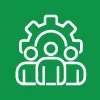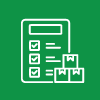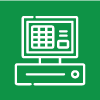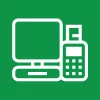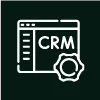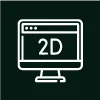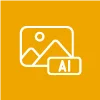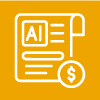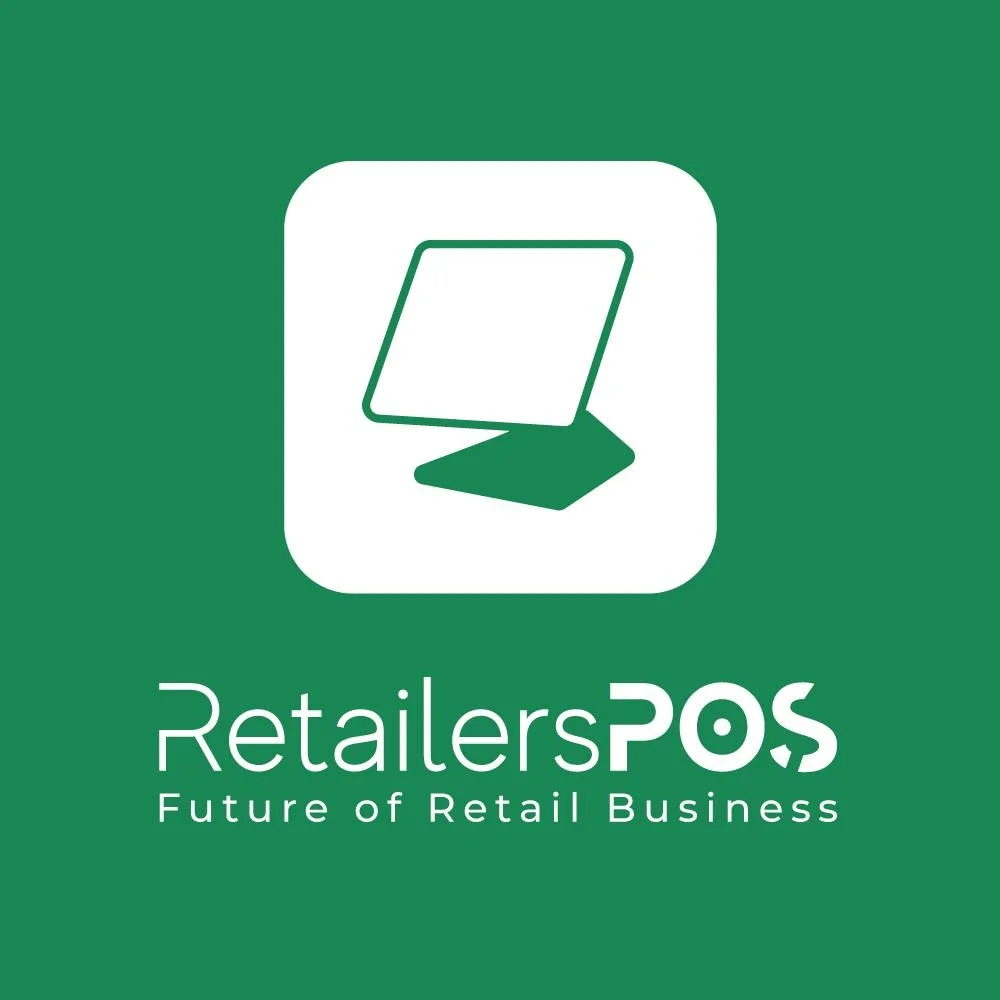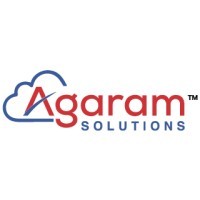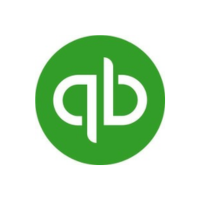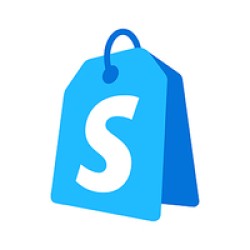What Is a POS System in Retail? User Guide
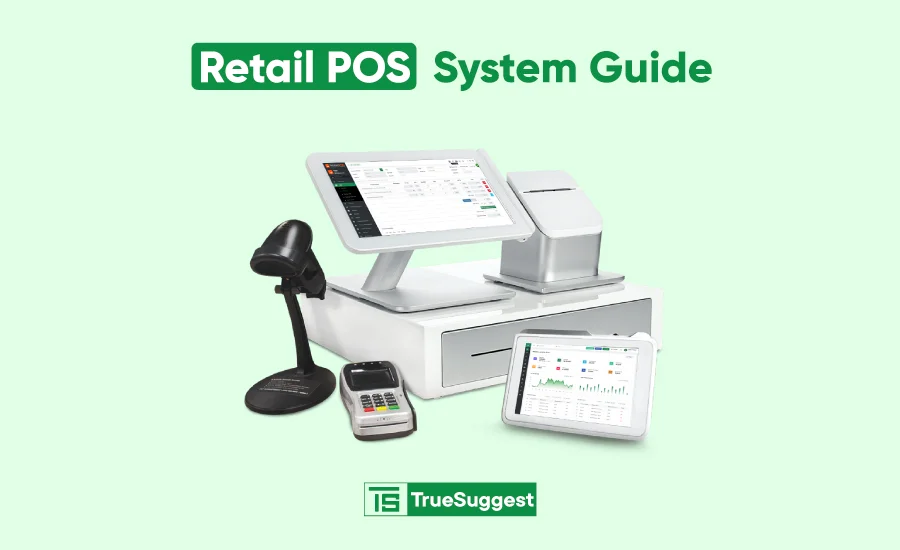
Point of sale system is a hardware and software combination. That allows businesses to conduct sales transactions and manage different aspects of the business operation. Those are retail businesses such as department stores, convenience stores, discount stores, E-commerce, supermarkets, warehouses, and others. These platforms use POS systems for their easiest billing, like direct payment, and card payment (debit card, credit card, etc.). Those are small retail shops that are also towering them to use POS systems. Its great benefit is to manage massive tasks within a short time and low cost.
A POS system in retail is a combination of hardware and software. POS systems allow businesses to conduct sales transactions and manage various aspects of business operations. The POS system accepts customer payment and tracks sales. So, how does the POS system work? POS or point of sale is a place or device where people make a transaction after buying, selling, or consuming something.
Whenever people place a card or make a transaction then this POS machine executes it and tracks the sale, date, quantity, and other things. Does POS do this job alone? Indeed, a prior command is given and configured with the software. So, the POS system works through a user command. Indeed, if a customer decides to buy any product then they place an order. Then the POS system calculates the product price.
In that case, the customer can see the total details in the POS display or monitor. If everything is okay with the customer then the customer pays the POS system finalizes the sales based on the user command. How many Point of sale equipment is involved with the POS system?
- It is used for processing sales.
- Used for easy interaction with the POS software.
- Used to quickly scan products for pricing and inventory management.
- This is used to print transaction receipts for customers.
- To process credit and debit card payments, often including support.
How Does a POS System Work In Retail Business?
The POS system in retail business performs as the central hub for sales transaction processing. If a customer decides to purchase an item, the POS system scans the product's barcode, retrieves the price, and applies any relevant discounts or promotions based on user command. The POS system calculates the total amount such as due, VAT, and discount. And then it processes the payment via cash, credit/debit cards, or mobile payment threshold.
Besides performing the sales and transaction process, modern POS systems also integrate with inventory management, CRM, order processing, supplier management, and others. Modern POS software provides detailed sales reports, tracks customer purchases, offers business analytics, and others. This integration streamlines operations, improves customer service, and increases retail business overall efficiency.
Types of POS Systems
There are different types of POS systems. These POS systems can be used to manage different tasks. However, each POS system offers different features. However, take a look at types of point-of-sale systems.
Point of Sale (POS) systems are crucial for businesses to manage sales, inventory, and customer interactions. There are several types of POS systems, each tailored to different business needs and environments. Take a look at the main types of POS systems.
1. Traditional (On-Premise) POS Systems
POS is an accounting software. POS accounting software can be used successfully for all retail business platforms. On-premises POS systems are installed locally on a business's own servers and computers. The On-premises POS system is suitable for Larger businesses with a fixed location. This type of POS system has the capacity to manage its own IT infrastructure.
2. Cloud-Based POS Systems
Indeed, cloud-based POS systems operate on the cloud. It allows access from any device with internet connectivity. It is the best POS system for small to medium-sized businesses. Those who require remote access can get access. Some cloud-based POS systems are Restora POS, Square, Shopify, Vend, etc.
3. Mobile POS Systems (MPOS)
This mobile POS system (MPOS) can be integrated into smartphones or tablets as the POS terminal. The MPOS system is suitable for small businesses, pop-up shops, food trucks, and events. The MPOS system can be used for small grocery shops, electronics shops, and other small business places. Let’s see some MPOS systems examples Square, PayPal Here, Clover Go, etc.
4. Open Source POS Systems
Open source POS system is free to use and modify. In most cases, open-source POS system customization options are limited to specific needs. Business owners require technical expertise for specific customization. So, what are the open-source POS systems? Odoo, uniCenta, Floreant, SambaPOS, etc. It is noted that they may have a premium package for premium operation.
5. Retail POS Systems
Retail POS is specially designed for retail environments. It contains some features for inventory management, customer management, and sales analytics. This POS system can be used for different and various shapes of retail platforms. Retail POS can be considered Lightspeed Retail, Vend.
6. Restaurant POS Systems
Restaurant POS systems can be used in the food and beverage industry. Its comprehensive features include table management, inventory management, CRM, employee management, kitchen display systems, menu management, and others. This POS system is used for fine dining restaurants, food trucks, cloud kitchens, commercial kitchens, cafes, etc. There are different types of POS systems, such as Restora POS, Bhojon, Toast, TouchBistro, Lavu, etc.
Importance of Retail POS Systems
A retail Point of Sale (POS) system is a crucial thing for modern retail businesses. It can be used in multifaceted platforms. Such software has been indispensable for retail and wholesale business platforms. Due to its multifaceted capabilities and benefits, it has been crucial accounting, managing, and billing software. So, let’s see some crucial points and believe how essential a POS system is for your business.
1. Efficient Transaction Processing
The POS system is the easiest way to the checkout process. It is the best software and hardware combination. It performs accurate and faster operations than manual methods. The retail POS system supports multiple payment options such as credit cards, debit cards, mobile payments, and cash. It also improves overall customer convenience.
2. Inventory Management
Are you tired of managing a big store manually? Choose the best retail POS system to leave your hesitation. It can contribute to your business in different ways, real time tracking, stock recording, product stock out, stock in, and other inventory-related tasks. By providing real-time inventory tracking, helps retailers maintain optimal stock levels and avoid overstocking or stocking out goods.
3. Sales Reporting and Analytics
The POS system is the easiest way to generate sales and receive bills. POS systems generate detailed sales reports, providing insights into sales trends, peak selling times, and product performance. Retailers can use analytics to make informed decisions about pricing, promotions, and inventory management.
4. Customer Relationship Management (CRM)
CRM is a customer relationship management. It can be used to manage customers and make better relations between customers and business owners by collecting customer data. POS systems collect and store customer data, such as purchase history, billing, suppliers, etc. It facilitates the creation and management of loyalty programs. POS systems also improve customer retention and satisfaction.
5. Business Employee Management
POS systems track employee sales and performance. It also helps to identify top performers in the market. Many POS systems include features for employee scheduling and timekeeping, simplifying workforce management. POS systems provide secure payment processing, protecting sensitive customer data.
6. Multi-Store Management
If you would like to manage your different stores from different locations, you can do that using a multi-store management system. It is a module that can be integrated with the POS system. For businesses with multiple locations, POS systems offer centralized management of inventory, sales, and customer data. This system also ensures consistent pricing, promotions, and customer experiences across all locations.
7. Integration with Other Systems
Another great benefit of retail POS systems is customization. Any module can be added to this system for business purposes. A business owner can add POS systems with e-commerce platforms to allow online and offline sales tracking. Integrate accounting software for financial management and reporting. However, add any module that you want for your business premises.
There are different types of modules or add-ons that can be integrated with the system. In that case, a business owner needs to confirm which add-on is required to manage a specific task.
What Features Should You Consider For A POS System In Retail?
Digital POS systems contain extensive features that your businesses need. Most POS systems are customizable. So, it's a great thing to add another module to perform a particular task. However, let’s see some essential and popular features that require most operations.
- Flexible payment options.
- Customer relationship management.
- Inventory management.
- Employee management.
- Data and report analysis.
- Customer management.
- Track Sales reporting.
- Customer and loyalty management.
- Reporting and Store management.
- Efficient order processing.
Final Thought
In the beginning stage, the POS system is used for billing and transaction purposes. Nowadays it has been towered into custom software. It means extra add-ons or modules can be added to handle your particular tasks. So, the necessity of a retail POS system is immeasurable. However, I have discussed what is a POS system in retail, types, importance, and others? So, use a POS system to manage, handle, make it easy, enhance customers, get more sales, and improve business growth.


